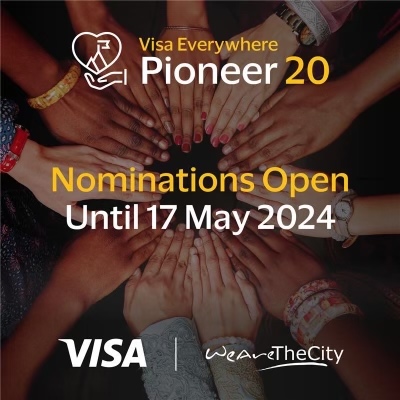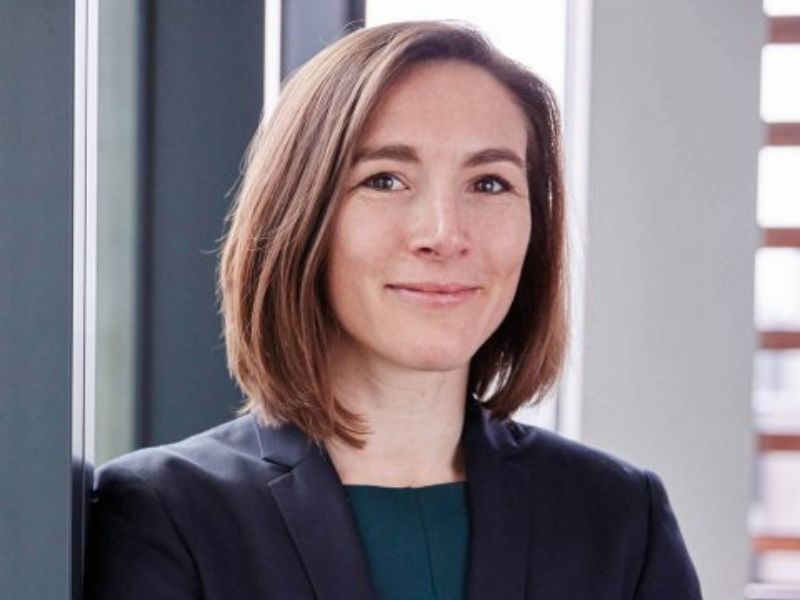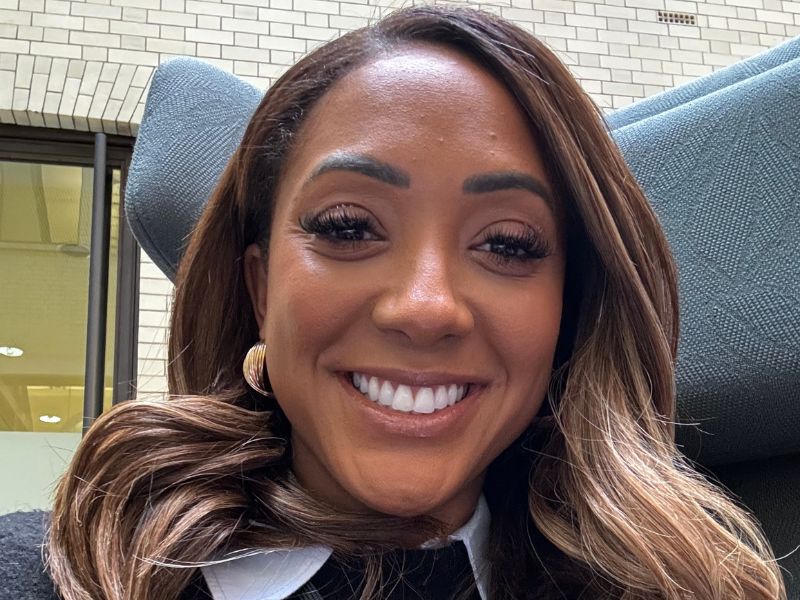Patricia Haywood is the founder of Haywood Commercial who are legal experts in the construction field.
They work with businesses who are tired of traditional rule-based contract and project management philosophies that require a push down of risks, helping them to maximise their profits.
Tell us a bit about yourself, your background and your current role.
I grew up in Jamaica. I always wanted to travel and to see beyond my shores. So, I went to university. I studied law, I did my Bachelor of Laws, and trained as a Barrister, and, the first opportunity I could get to really work and live outside of my country, I took it. I went to the British Virgin Islands, and I worked there for a little bit, but I wasn’t content, so I left, and I came to the UK. I did a master’s in Scotland. And it just so happened that I decided to do my masters during the worst financial time in my lifetime- during the last financial crash.
I don’t think I fully appreciated the impact that that time was going to have on my life. When I left the master’s program, I was applying to hundreds of jobs. And I know this because I had a little notebook that I used to keep where I used to log, like the places I have applied to or where I’m going to apply to. So, I applied to hundreds of places and, no one was hiring me. I’m sure they were hiring people, but they were not hiring me. I like to make that distinction. I could not get a job. It was a really stressful time for me. I was really in a really sad place at that point in time, because I am not from a very close-knit family, so, I had no safety net, I didn’t have anywhere to turn. I didn’t know what to do. And here I am in a foreign country with barely any job prospects and trying to figure out life. I’m in my early 20s and I’m trying to figure out life on my own in a foreign country. It was a very sad time for me in my life. Going through it was painful for me, but it shaped my journey and was a pivotal fork in the road.
I consider myself to be an immigrant entrepreneur. I’m a descendant of the Windrush generation because my grandparents came to the UK on the ship. I’ve always loved business. I’ve always loved doing my own thing. I’ve always had this entrepreneurial spirit within me and I’ve always, since very young, been “trying my hand” at different things. I’m, not the type of person who can sit at a desk for eight hours and I do not like that feeling of, giving away my power to other people and them having control over my adult life, where I have to ask permission to go to my child’s game, for example. I’m just not that personality.
Knowing my personality, I work in my own business as a construction lawyer. I work on, construction projects, especially major projects, such as regeneration projects, infrastructure projects and so on.
Did you ever sit down and plan your career?
No, I did not. well, that’s not true. I tried. So early on when I ventured into law, I tried charting a path for myself. But they have this saying when you are planning, God has other plans for you. And I was not at a place in my life where I would sit down and contemplate on the purpose that I was brought here for. I was not in that place. So, I would try to plan my career. However, I soon realised that that didn’t work for me. During the last financial crisis, I got a life lesson in planning, and I learned that you have to be flexible and adaptable. You can’t stick to plan A if it is not working. The best businesspeople understand that you plan but stay ready for change. Life doesn’t go according to plan; it never does for me. And I have grown to accept that. Now I embrace the twists and turns of the adventure, I don’t take myself too seriously, and I do my best to take whatever life throws at me. Construction is an accidental career for me. It is for many people in the industry as well. But it is a very rewarding career.
Have you faced any challenges along the way?
Of course, I have. One of the major challenges I faced during my adult life was when I moved to a foreign country and couldn’t get a job. In my mind, I was qualified, willing and able to do good work, but for some reason, I could not get full-time employment. I now realise that that was the fork in the road for me. My mind was stuck on going back to private practice, even though I hated it when I was there, I was trying to get back to my comfort zone, meanwhile, God was trying to show me the path for me, not the well-trodden path of so many lawyers. It was a course correction, although painful, because as my husband often says, “You were meant to be the entrepreneur in the family”. During that challenging time, I learned to be flexible, and adaptable and stay open to alternative opportunities.
Before going to private practice, I’d worked in different jobs and roles, but I didn’t consider them as long-term careers. You name it, I probably have done that role. I’ve been a secretary. I have been a personal assistant. I’ve worked in a Chinese restaurant as a server. I have worked on construction sites. I have worked at car rental and sales companies. I’ve worked in garages. I have done quite a mixed bag of things to make money. It’s an honourable thing to make money, in my view. I believe that once it’s legal and moral, it’s honourable to make money. I never felt that any job was below me. When I realised that I was not going back to private practice, I pick up a few jobs doing non-traditional legal work and I found that I had a lot of transferable skills. I started going through my list of previous jobs and what I liked and didn’t liked, what felt good, and I realised that the plan I had for myself and my career needed to go. Once I had that realisation and made that decision, doors started opening up for me. I started my first business and I stepped into the world of construction as a career and never looked back. I have worked as a quantity surveyor, commercial manager, commercial lead, commercial director, legal advisor, etc in the construction industry. What was a painful time for me has future proofed my career and opened me up to so many opportunities. The industry is rich with opportunities, and I have seen the construction deal from every angle, now I bring a unique skill set to the industry. So, I am grateful to the fork in the road.
Another major challenging time in my life was after I received significant success. I had a very successful business, and we were doing really well financially. I made some investments that didn’t work out as planned, and we just came right back down the ladder. And that was a humbling experience for me, because when you reach a certain level of success, and then you have to go back down, it is a humbling experience, and it really knocks your confidence. That fall can go one of two ways: stay down or get back up. I went through this process, this grieving process of, what I had achieved and who I thought I was. You essentially grieve that thing you lost and you cannot stay there. Coming from a poor background and achieving massive success, especially off the back of the challenges I faced during the last financial crisis, I attached my value to the success and the things I acquired. I had to go through a process of unlearning and relearning who I am and getting my values right. I was able to pick myself up and keep moving. And, it did require some lifestyle adjustments. I remember when that happened. I started selling everything. My Hermes scarves, my Gucci bags. I was just selling everything. I was cleansing and purging, and I was really creating that vacuum in my life for a new beginning. It took a while for me to build back up my confidence and start over. I learned so many lessons during that time that I take with me daily. One of which is that you can’t attach your value to things, because when they are gone, you will struggle. These days I find happiness in myself and the little things in life and not material things.
What has been your biggest achievement to date?
I would say my biggest achievement to date is having my son, having my son and understanding that I’m the giver of life. I mean, well, God is the ultimate giver of life, but I’m, the portal through which the life came through and that I was able to grow and have my son and my birth was challenging. I had complications and I eventually had to go into high-dependency care at a hospital. Many scans and, scares later, I’m still here. And for me, that’s my biggest achievement, to be able to have my son and to experience, his growth and to see him grow and to realise that life is bigger. It puts everything into context. For me, the purpose of life is bigger than the nine-to-five and the day-to-day, and the things that we tend to put priority on as human beings.
What one thing do you believe has been a major factor in you achieving success?
I don’t know if I’ve achieved success. I think success is a journey. I don’t think it’s a destination. But a major factor, for me has been the fact that I stopped relying on myself. I believe in God and I centre my life around God and his guidance. I follow biblical principles, in my business, in my life, and in my career, to guide me. And I think that was the major shift for me. The moment that I stopped trying to do everything myself and handed over everything to God, started reading the Bible, for me, the bible is not a religious book. The Bible, for me, is the best how-to book, the best business book. The Bible is the best friendship book. It’s the best, marriage counsellor for me because it’s the life. It talks about the lives of people and what they did, what happened to them, how they fixed it. It’s like the blueprint, and it gives you everything that you need to know and to do in this time because the bible is timeless, the principles are timeless, and the principles are Truth with a capital T. And truth cannot lie, and truth is always applicable. It doesn’t matter the decade, it doesn’t matter the skin colour. It doesn’t matter where you’re from if you’re an immigrant or not. You apply these principles, and they’ll work for you. And so, the major factor for me was when I stepped aside, I stopped relying on my ego, I stopped relying on myself. I stopped thinking that I knew it all. And, I handed it over to God and really started not just reading the Bible, but applying the principles from the Bible. And that’s when things started to change for me.
How do you feel about mentoring? Have you mentored anyone or are you someone’s mentee?
Mentoring, I think, is the cheat sheet. Like Cliff notes. When I used to do my studies, we had Cliff notes. It’s like the shortcut to whatever goal you’re trying to achieve. Mentoring will accelerate that for you. And I’m, 100% about mentoring, and I have mentored people before, and I’m also a mentee. I have a mentor. I have two mentors. We do property investing, so I have a mentor for that. And I, also have another mentor for my business who is light years ahead of me financially, on the journey. Because one of the things that, when I speak about my financial failures in the past, one of the key things that was missing, and this was what I realised upon reflection, was that I didn’t have mentorship. I didn’t have coaches. I was doing things on my own, and some things would work and some things wouldn’t work. And when things worked, I didn’t necessarily know why and how they worked. I was just going along like a hustler; I was just hustling, and things were working for me. But, hustling isn’t the way to build a sustainable business. It can take you to £1 million, but you need to be able to replicable it yearly. That is where solid business advice, processes and systems come in. I have saved myself so many mistakes by having mentors who are ahead of me in the game of business.
If you could change one thing to accelerate the pace of change for Gender Parity, what would it be?
I will speak about construction because that’s what I know about construction. We don’t have a lot of women in construction, and we don’t have a lot of women in leadership positions or decision-making positions in construction. And, the industry is always trying, to bring in more women. We had Women in Construction Week the other day, and you always have this mad push during the Women in Construction week to get more women, to advertise for more women. We need more women, and we’ve been having this discussion for forever. But I think one of the reasons why we have the issue about women in construction and getting women into construction is the fact that the same opportunities aren’t necessarily there for women in the industry. The way the industry is set up right now, it’s a blocker for women to really come into the industry and accelerate their careers because of the working conditions, and how things are set up in terms of fewer women in leadership positions, fewer women even on the project boards. So, women are often removed from critical discussions, unable to make input that could potentially make a change. For example, the way construction sites are set up, it is clear that there is often no woman in the room when the decision on the site layout and facilities are being drawn up.
Another issue we have in the industry is the pipeline in the industry. As women enter, other women leave. Women enter with enthusiasm and believe they can make a change, only for it to be beaten out of them by the male-dominated culture. Eventually the women, down-trodden leave. So, the problem is also one of retention. The New Civil Engineer reported a 2020 study that found that 72% of women in construction say they have faced discrimination at work. The article also pointed out that 47% of women who leave construction cite the male-dominated culture of the industry as a reason for leaving, with 38% saying that outright discrimination had forced them out.
According to the trade union GMB, it could take up to 200 years to achieve gender equality in the construction sector. We all cannot wait that long.
I believe that the government must play a key role in accelerating the change. The Government is a big employer in the construction industry. It also awards most of the construction contracts to these construction companies that perpetuate the culture that shuts women out. In my view, creating an environment where there are more women-owned businesses in the sector will help to accelerate the change we want to see. You know the saying: “Build your own table”? I believe it is time women started building their own tables, by starting and running their own businesses in the industry.
As business leaders, women will have a greater voice and influence. As a business owner, women will be able to make a bigger impact, one construction contract at a time. A McKinsey report in 2023 reported that 45% of women surveyed said that the absence of women in senior roles in construction companies had hampered their career journeys. The evidence is there, and women have spoken for decades on what needs to be done.
And the government can assist with this by allocating a portion of construction contracts to women-led companies like they are trying to do for SMEs. Women do start and run businesses in the industry, but they will tell you the hurdles they face as a woman-led business, some don’t even show their face, they position a male as the face of the business for strategic purposes. They know and believe that by having a male, they will get more work. It also means that women-led business is sometimes stifled out of the industry. And the government, if they really want to influence the industry can do so much more for women-led businesses.
If you could give one piece of advice to your younger self what would it be?
I would tell my younger self to enjoy the adventure of life. Understand that everything happens for your greater good. I would advise her to be more reflective and trust her inner guide. Because there were times when I didn’t make the choice, I deeply knew was the one for me. However, mistakes are a great way to learn and the key is to take the lessons and implement them. One of the things I wish I had started sooner, was to keep commonplace books. They have been a game changer for me and my personal development. I would advise her to start keeping commonplace books, recording her journey and the insights she is learning.
What is your next challenge and what are you hoping to achieve in the future?
I am embarking on an ambitious goal of building out our property portfolio. Along with my mentor, business partner and investors, we have outlined the road map and it requires me to dream bigger and take bigger steps. It will require me to slowly scale back my construction law consultancy and dive full-time into property development. So once again, I am being pushed out of my comfort zone. But I know this time, I am ready for whatever comes my way.
Read more from our inspirational profiles here.









